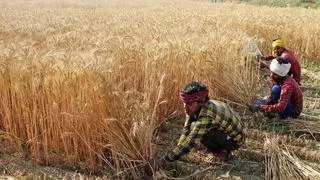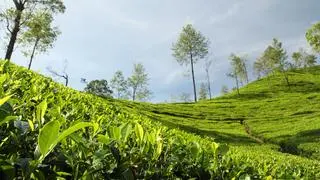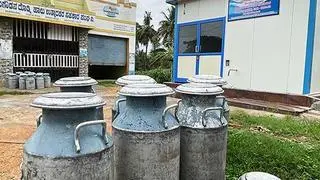Bharatiya Kisan Sangh (BKS), which claims a membership of five lakh farmers in Gujarat, three Agricultural Produce Marketing Companies (APMCs) in the State, along with former Health Minister Anbumani Ramadoss, have joined the chorus of organisations and activists opposing commercial cultivation of GM mustard.
Three out of four APMCs in mustard-growing belts of Gujarat have written to the regulator, Genetic Engineering Appraisal Committee (GEAC), pointing out that there is no special demand for GM foods in the market.
These APMCs together represent around one lakh farmers and business worth ₹400 crore, said Abhishek Joshi of Sarson Satyagraha, at a press conference here on Friday.
Example of cottonIn a separate letter to Hem Pande, Chairperson, GEAC, BKS cited “great troubles” being experienced by Bt cotton farmers in Gujarat who are facing an attack by pink bollworm and other sucking pests, leading to increased pesticide and fertiliser use, raising inputs costs further.
BKS said farmers have been cultivating mustard since ages and a good amount of “natural diversity” exists, including one hybrid variety.
“Average productivity of mustard in the State is about 1,700 kg/hectare, which is the second highest in India”, it said, opposing any move towards commercialisation of GM mustard.
Gujarat has not given a nod for open field trials of GM food crops and also adopted an organic farming policy recently.
Unresolved controversiesRamadoss, in a letter to Health Minister JP Nadda and Environment Minister Prakash Javadekar, released at the press meet, said he was reacting to media reports that the government was considering approval of genetically modified (GM) mustard and an application had reportedly been moved in this regard to GEAC.
Citing “unresolved controversies” around GM crops, Ramadoss said mustard was consumed extensively in the country and was also used in the Indian systems of medicine, especially Ayurveda.
“It is not clear what the impact of genetic modification of natural plants would be in terms of efficacy and toxicity of plants in Ayurveda,” he said, lamenting that “bio-safety data is not being shared with the public despite Supreme court orders.”
Kavitha Kuruganti of the Coalition for a GM Free India, hoped the government had drawn some lessons from the land acquisition ordinance fiasco for going against people’s interests.
Up in armsThe Right To Food Campaign has also written to Javadekar stating that the oilseed production problem was due to “lopsided policies of successive governments, was not an issue of productivity alone, and should not be sought to be resolved through adoption of unneeded, risky techno-fixes.”
Mira Shiva, of ‘Doctors for Food Safety and Biosafety’, said, “the classification of glyphosate as a probable carcinogen by WHO tells us once again that adequate long-term tests are not being done comprehensively so that scientific decisions can be taken about the safety of a product.”
The GM mustard being opposed by the activists is named DMH 11 (Dhara Mustard Hybrid 11) and has been developed by the Centre for Genetic Manipulation of Crop Plants, Delhi University, with support from the Department of Biotechnology and National Dairy Development Board.







Comments
Comments have to be in English, and in full sentences. They cannot be abusive or personal. Please abide by our community guidelines for posting your comments.
We have migrated to a new commenting platform. If you are already a registered user of TheHindu Businessline and logged in, you may continue to engage with our articles. If you do not have an account please register and login to post comments. Users can access their older comments by logging into their accounts on Vuukle.